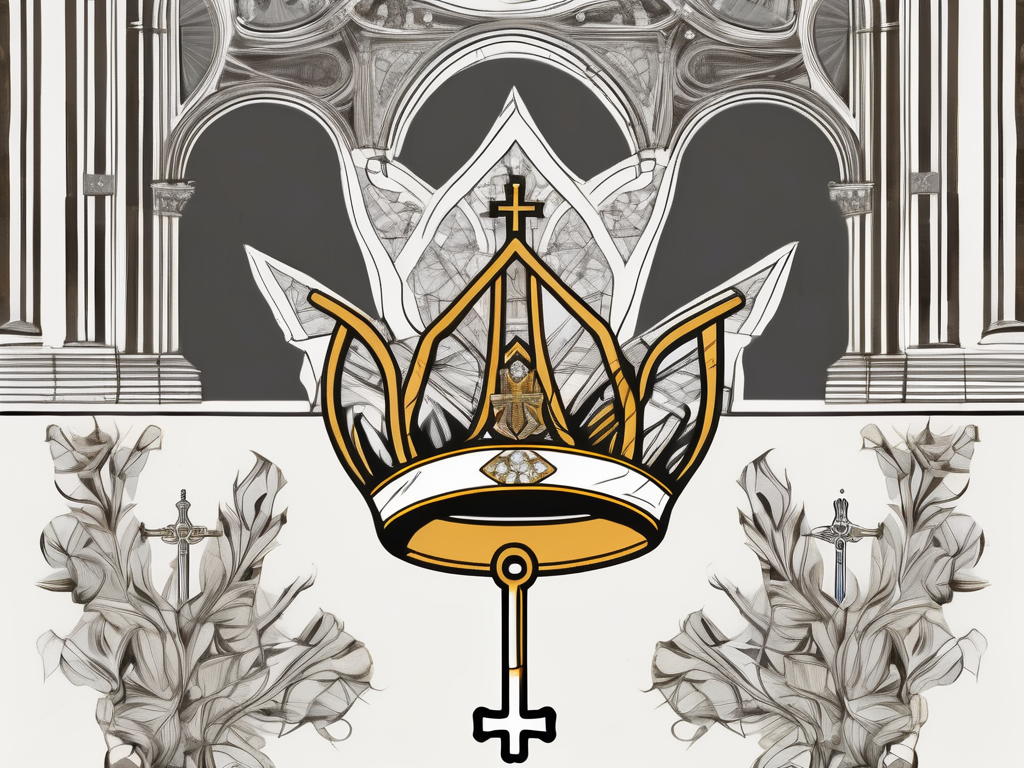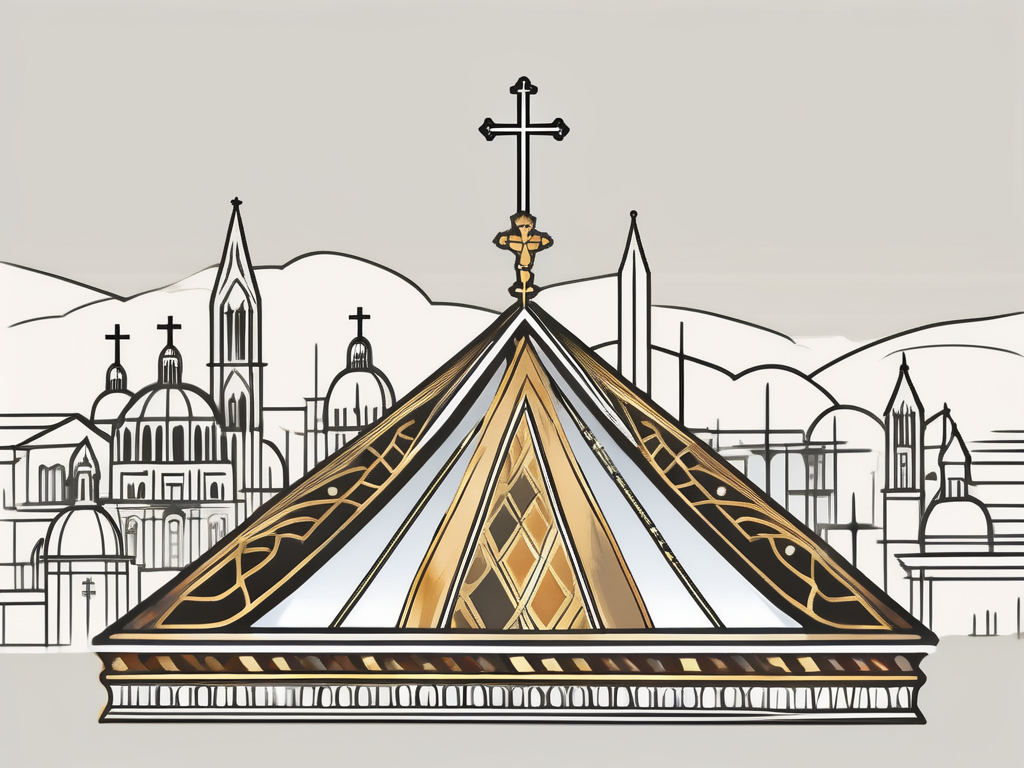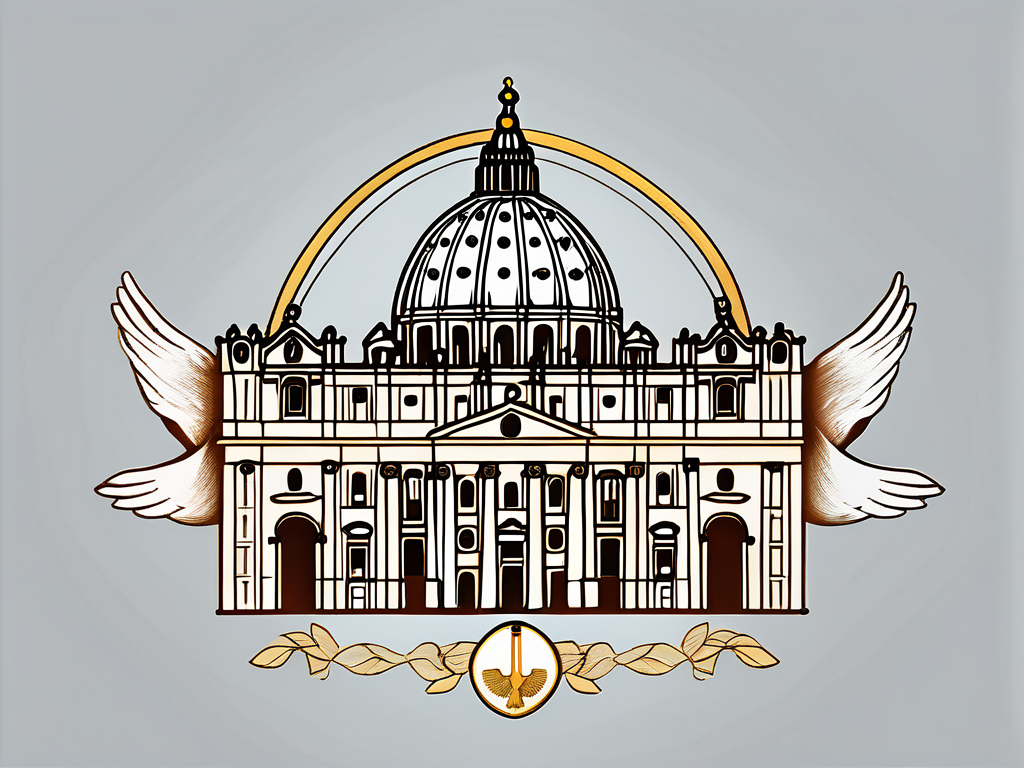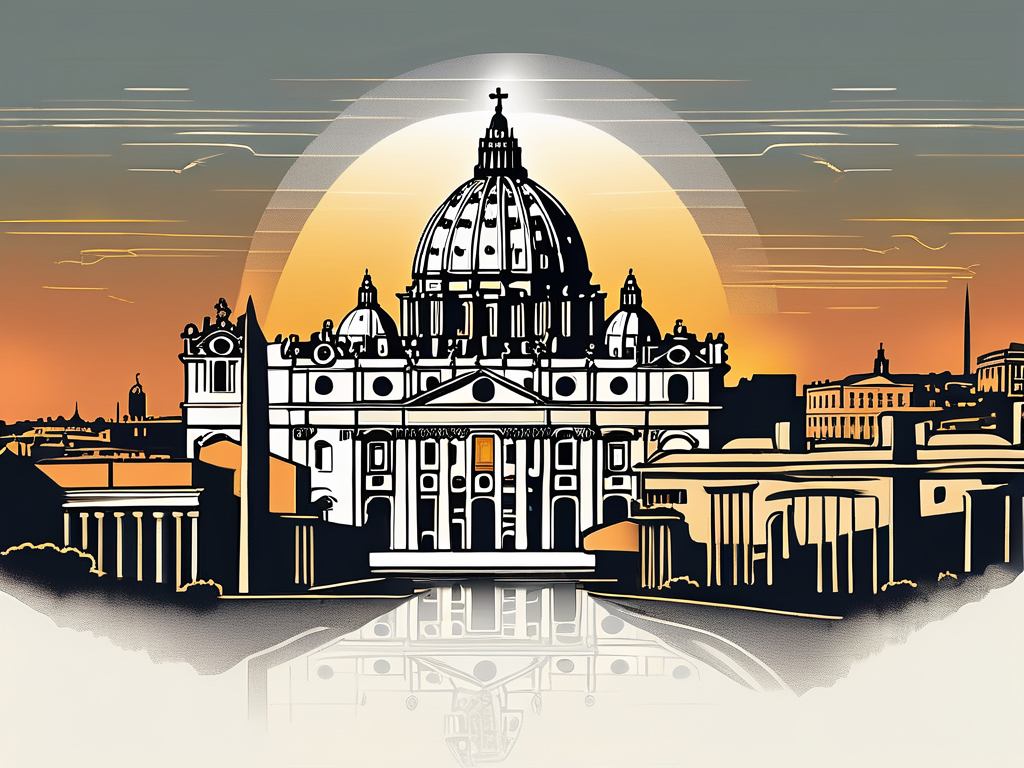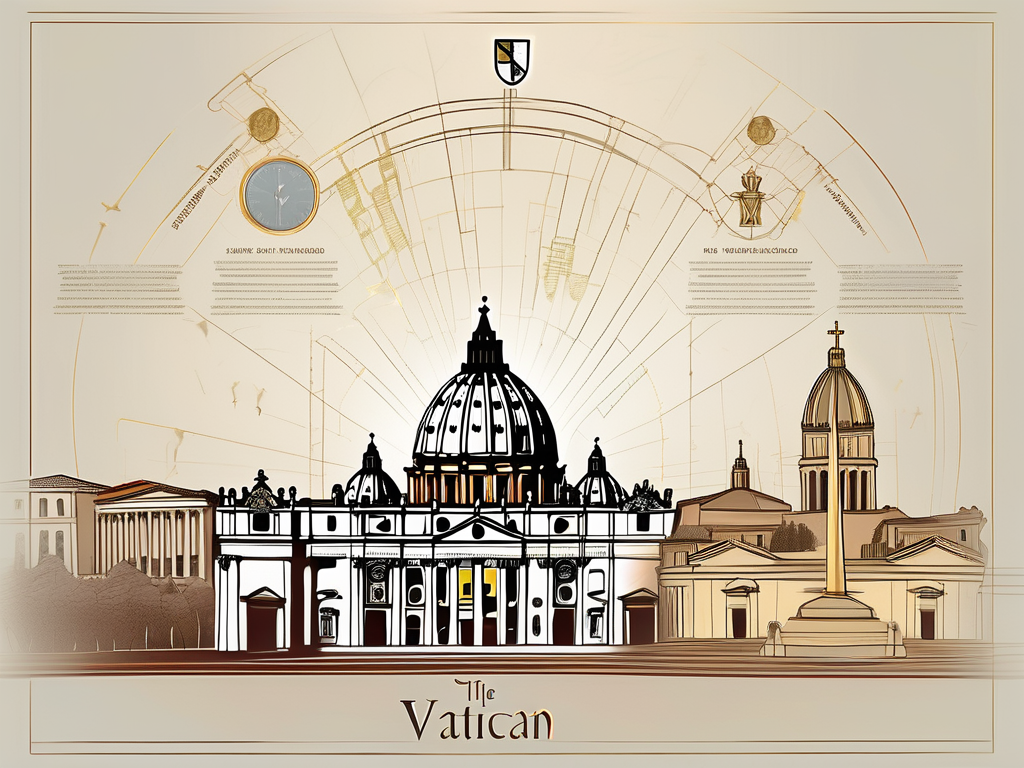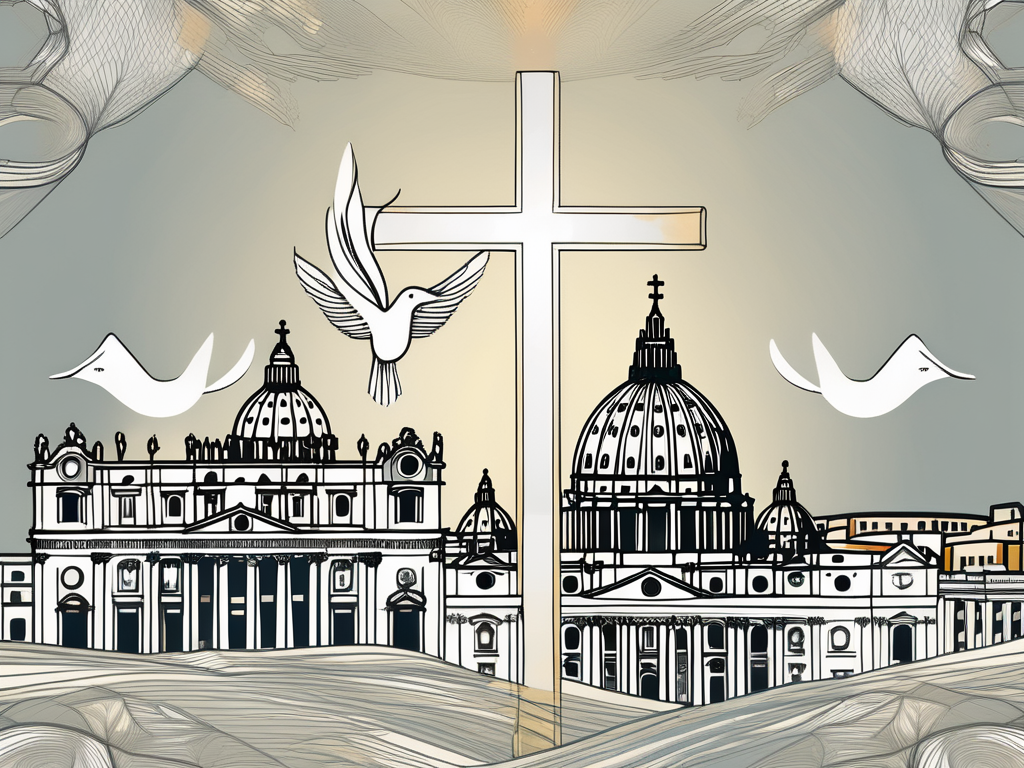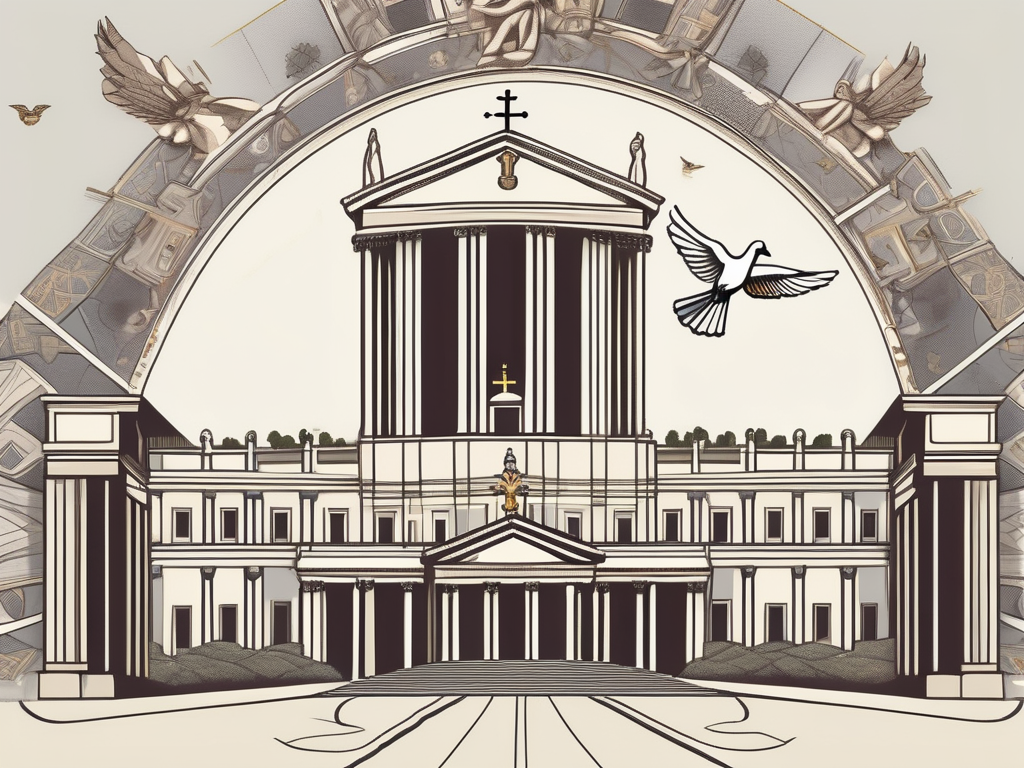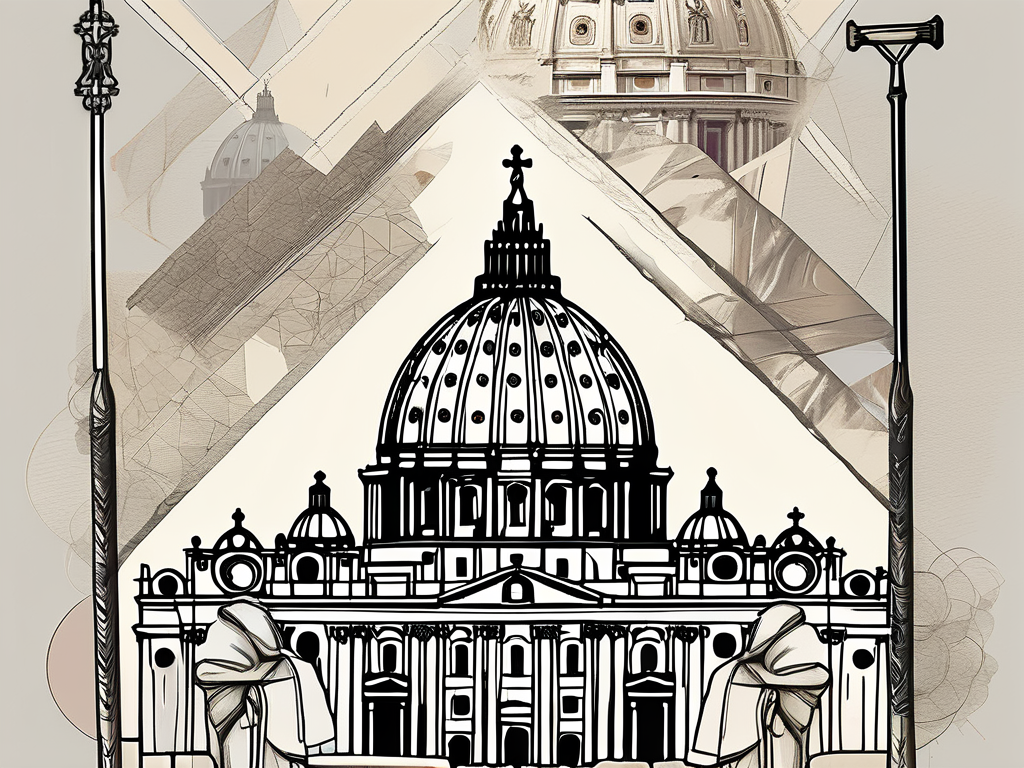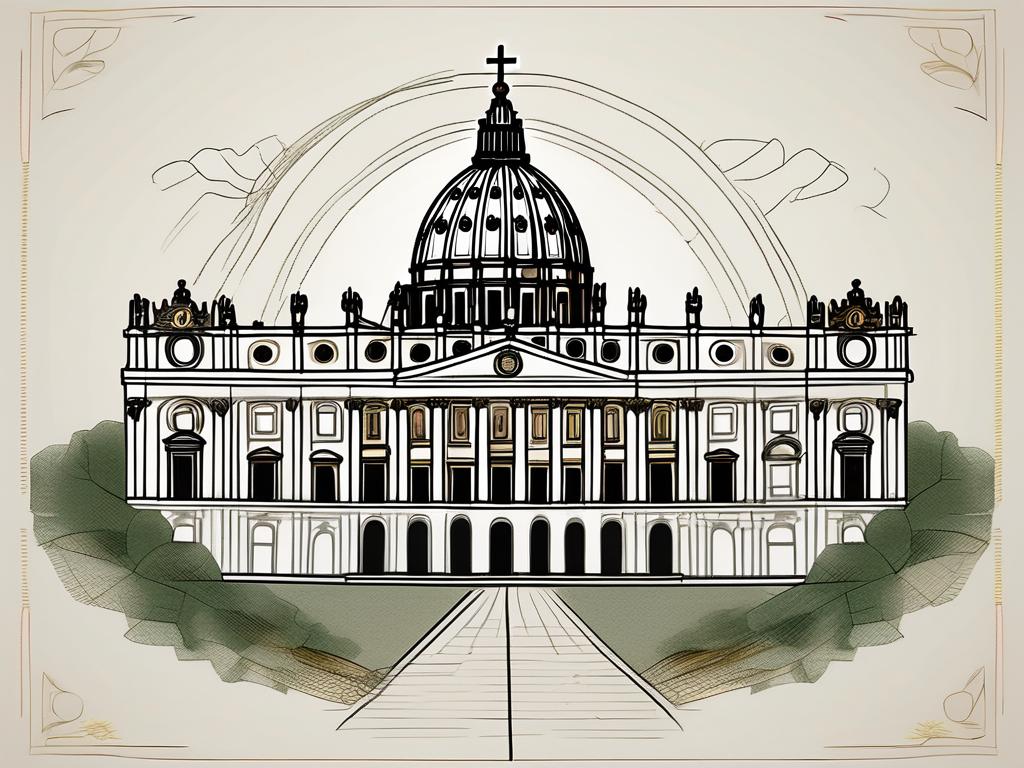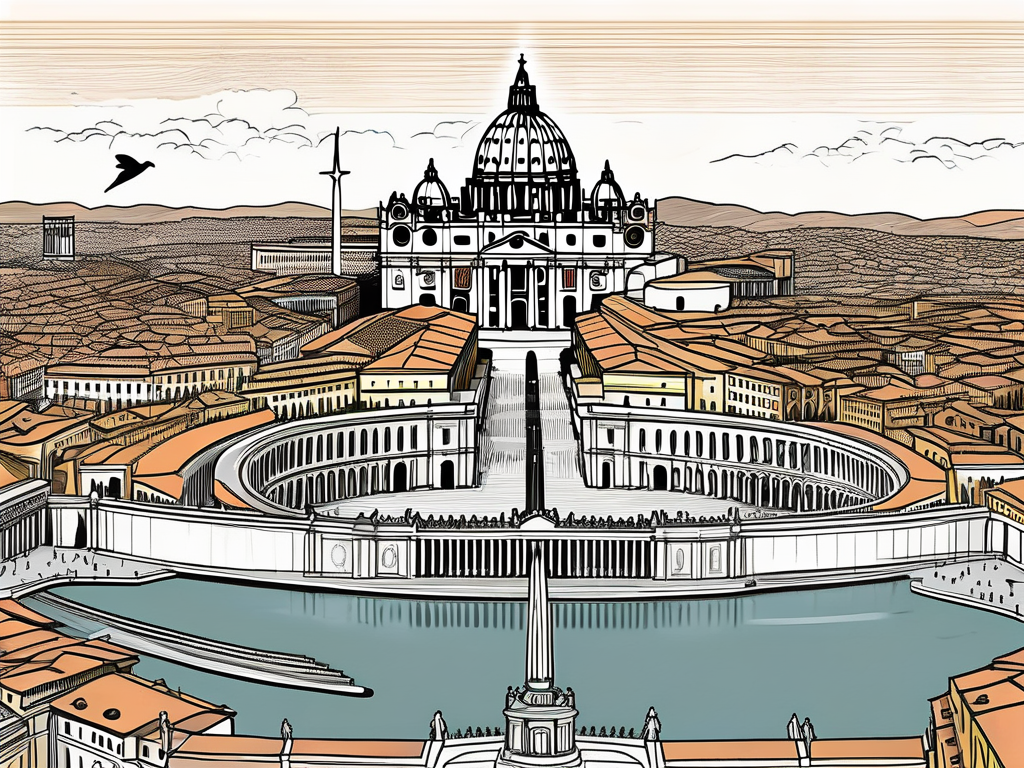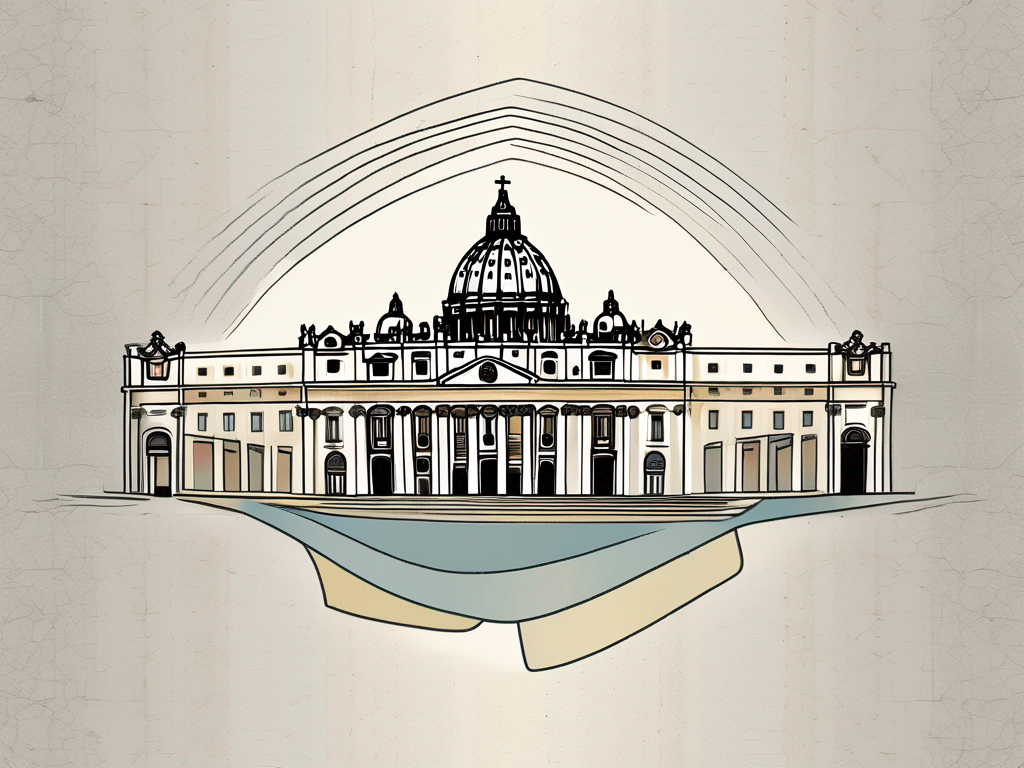Pope Celestine V, born Pietro Angelerio, was a pivotal figure in the history of the Catholic Church. His rise to the papacy, unprecedented resignation, and subsequent influence have left an indelible mark on the institution. In this article, we explore the early life and path to the papacy of Celestine V, his notable decisions and actions during his tenure as pope, the reasons behind his unprecedented resignation, his post-resignation life and death, and his lasting legacy and influence on the Catholic Church.
Early Life and Path to the Papacy
Celestine V’s journey to the papacy was shaped by his humble beginnings and spiritual calling. His childhood was marked by simplicity and an unwavering devotion to his faith. Born into a poor family, he experienced the hardships of rural life. However, his unwavering commitment to God set him on a unique path.
As a young man, Celestine V’s innate piety and inclination for solitude led him to join the Benedictine order. He immersed himself in prayer, contemplation, and the study of Scripture. It was during this time that his spiritual journey propelled him towards a higher calling, ultimately leading him to the papacy.
Childhood and Early Influences
Childhood experiences often shape the individuals we become, and this was no exception for Celestine V. Growing up in a devout household, he was instilled with strong moral values and a deep sense of faith from an early age. The tight-knit community in which he was raised nurtured a sense of social responsibility and compassion.
Moreover, Celestine V’s encounters with priests and local religious figures played a crucial role in shaping his understanding of the Catholic Church and its teachings. These formative experiences laid the foundation for his future spiritual journey and his commitment to serving God’s people.
One particular encounter that left a lasting impression on young Celestine V was with a wise old monk who had dedicated his life to prayer and contemplation. The monk shared stories of his own spiritual experiences, igniting a deep sense of curiosity and longing within Celestine V. From that moment on, he knew that his path would be one of devotion and service.
Throughout his childhood, Celestine V would often spend hours in the local church, captivated by the beauty of the stained glass windows and the peacefulness that enveloped the sacred space. It was in these moments of quiet reflection that he felt closest to God, and he knew that his purpose in life was to spread His love and teachings.
Spiritual Journey and Ascension to the Papacy
Years of devoted study and prayer led Celestine V to embrace an ascetic lifestyle. He sought divine guidance and withdrew from worldly distractions. His profound spirituality caught the attention of fellow clergymen, who recognized his extraordinary commitment.
During his time in the Benedictine order, Celestine V embarked on a pilgrimage to the Holy Land. The journey was arduous, filled with physical challenges and moments of doubt. However, it was through these trials that Celestine V’s faith was strengthened, and he returned to his community with a renewed sense of purpose.
Upon the death of Pope Nicholas IV in 1292, Celestine V emerged as a consensus candidate for the papacy. Although initially hesitant, his deep humility and unwavering dedication to his faith ultimately led him to accept the immense responsibility of leading the Catholic Church as Pope Celestine V.
His papacy was marked by a commitment to simplicity and humility. He eschewed the trappings of power and wealth, instead focusing on the spiritual well-being of the Church and its followers. His gentle demeanor and compassionate nature endeared him to the people, who saw in him a true servant of God.
Throughout his papacy, Pope Celestine V worked tirelessly to promote unity and peace within the Church. He sought to bridge the divide between different factions and emphasized the importance of dialogue and understanding. His efforts laid the groundwork for future popes and set a precedent for leadership that prioritized the needs of the faithful.
Although his papacy was short-lived, Pope Celestine V’s impact on the Catholic Church and its followers was profound. His unwavering faith and commitment to simplicity continue to inspire believers to this day.
The Papacy of Celestine V
Pope Celestine V’s papacy was marked by a series of notable decisions and actions that reverberated throughout the Catholic Church and beyond.
During his time as Pope, Celestine V made significant efforts to support and promote the eremitical life within the Catholic Church. Recognizing the value of contemplative lifestyles, he encouraged hermits and ascetics, believing that their devotion and dedication could serve as a source of inspiration for others seeking a deeper spiritual connection.
In addition to his emphasis on the eremitical life, Celestine V also focused on ecclesiastical reform. He was determined to eliminate corruption and promote transparency in the Church’s administration. His commitment to ethical leadership and moral integrity set an example for future popes and remains an important part of his legacy.
However, Pope Celestine V’s reign was not without its challenges and controversies. One of the most significant controversies arose when he issued a decree allowing popes to resign. This decision, unprecedented at the time, would later have far-reaching consequences that would shape the future of the papacy.
Internal divisions within the Catholic Church also posed challenges to Celestine V’s leadership. Many individuals within the Church hierarchy disagreed with his methods and ideals, leading to tensions and the formation of factions. These divisions would ultimately contribute to his decision to step down from the papacy, as he believed that his resignation would help bring unity and stability to the Church.
Despite the controversies and challenges he faced, Pope Celestine V’s papacy left a lasting impact on the Catholic Church. His support for the eremitical life and his commitment to ecclesiastical reform continue to influence the Church’s understanding of spirituality and leadership. Celestine V’s legacy serves as a reminder of the complexities and responsibilities that come with holding the highest position in the Catholic Church.
The Unprecedented Resignation
In a stunning turn of events, Pope Celestine V made the unprecedented choice to resign from the papacy in 1294. His decision sent shockwaves throughout the Catholic Church and the wider world.
Reasons Behind the Decision
Celestine V’s resignation was rooted in his deep humility and recognition of his own limitations. He believed that another individual could better lead the Church in turbulent times. This act was a testament to his selflessness and unwavering commitment to putting the needs of the Catholic Church above his own desires.
Impact on the Papacy and the Church
Celestine V’s resignation set a precedent for future popes, proving that stepping down from the papacy could be a legitimate and honorable act. This event had far-reaching implications, shaping the dynamics and expectations surrounding papal transitions for centuries to come.
Post-Resignation Life and Death
After his historic resignation, Celestine V retreated to a life of solitude and prayer. Despite his intentions to live as a hermit, his supporters continued to seek his guidance, and he remained an influential figure within the Church.
Life After the Papacy
During his post-resignation life, Celestine V focused on deepening his spiritual connection. He embraced a solitary existence, nourishing his soul through prayer, contemplation, and meditation.
Celestine V’s reputation as a wise and humble spiritual leader grew, attracting followers from near and far. Many sought his advice on matters of faith and came to him for solace in times of turmoil.
Death and Canonization
Pope Celestine V’s earthly journey came to an end in 1296. His death was mourned by those who recognized his significant contributions to the Catholic Church.
In recognition of his exemplary life and profound spiritual influence, Pope Celestine V was canonized as a saint in 1313. His canonization solidified his legacy and ensured that his teachings and virtues would continue to inspire future generations.
Legacy and Influence on the Catholic Church
The life and papacy of Celestine V left an enduring legacy that continues to shape the Catholic Church to this day.
Immediate Impact and Reactions
Celestine V’s resignation initiated discussions on papal authority and the importance of humility within the Church. His decision prompted reflection on the complexities of leadership and the need for ethical integrity.
Moreover, Celestine V’s emphasis on Church reform laid the groundwork for future efforts to address corruption and promote transparent governance. His papacy reignited a commitment to spiritual purity and moral uprightness within the Catholic Church.
Long-term Influence and Modern Interpretations
Celestine V’s historic resignation has continued to resonate with subsequent popes. It has become a symbol of humility and a reminder that leaders must always prioritize the greater good of their institution.
Furthermore, his steadfast commitment to spiritual solitude and intimate connection with God has inspired many individuals to seek a deeper understanding of their faith and a more personal relationship with the divine.
In conclusion, Pope Celestine V’s life and legacy are testaments to the power of humility, spiritual devotion, and ethical leadership. His early life and path to the papacy, notable decisions and actions, unprecedented resignation, post-resignation life, and lasting influence on the Catholic Church all contribute to a multifaceted understanding of his impact. Pope Celestine V’s example and teachings continue to resonate with believers around the world, reminding them of the importance of faith, integrity, and selflessness in their own lives.
